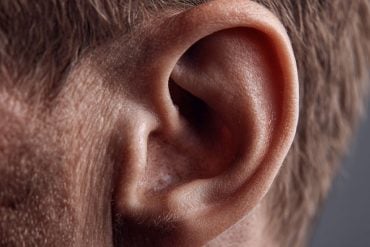Summary: The association between alcohol use, smoking, antisocial behavior, and depression was stronger in Gen Z teens than millennials during their teenage years.
Source: UCL
Substance use and antisocial behaviour are more likely to go hand-in-hand with poor mental health for generation Z teens compared to millennial adolescents growing up a decade earlier, finds a new UCL study.
Researchers from the Centre for Longitudinal Studies (CLS) at the UCL Social Research Institute and the University of Liverpool analysed data collected from two cohorts, born a decade apart, when they were 14 years old.
The younger generation Z group was made up of more than 11,000 young people born across the UK in 2000-02, who are being followed by the Millennium Cohort Study. The older group of millennials consisted of just over 5,600 people who were born in the Bristol area in 1991-92 and are being followed by the Children of the 90s study.
The research, published in the Journal of Adolescent Health, reveals that even though rates of alcohol consumption, smoking, and assault among young people fell over the 10 year period – between 2005-2015 – the association between these behaviours and depressive symptoms was stronger for generation Z.
Co-author, Dr Praveetha Patalay (UCL Centre for Longitudinal Studies and MRC Unit for Lifelong Health and Ageing) said: “While it’s good news that underage smoking and drinking appears to have become less common in more recent cohorts, we found that young people who did engage in these activities were more likely to also experience mental health difficulties compared to previous generations.”
The researchers examined the prevalence of mental ill-health, substance use, antisocial behaviour, high body mass index (BMI) and perception of excess weight among both cohorts at age 14, and then looked at how likely they were to occur together.
Rates of depression among adolescents had almost doubled in the 10 years between the two generations – from 9% to 16% – but prevalence of antisocial behaviour and substance use, behaviours which have been recognised as predicting poor adolescent mental health in previous studies, had decreased over the decade.
Rates of 14-year-olds assaulting someone on purpose had dropped from 40% to 32%. More than 52% of the millennials had tried alcohol by age 14, compared to less than 48% of those born a decade later, and, 9% of millennials had tried smoking cigarettes in adolescence, compared to 5% of generation Z.
Among both generations, prevalence of mental ill-health was higher among those who reported underage drinking, smoking and assault. However, these risky behaviours and mental ill-health were more likely to occur together among generation Z teens than millennials. For example, among generation Z, those who had tried smoking were almost twice as likely to also have depressive symptoms compared to millennial youths.

The researchers also examined the link between excess weight and poor mental health. They found that rates of obesity among young people had almost doubled over a decade, from 4% to 8%. Generation Z teens were also more likely to perceive themselves as being overweight or obese compared to their older counterparts at the same age (33% versus 26%). Among generation Z, those who were overweight or obese and those who perceived themselves to have a high BMI were more likely to also report depressive symptoms at age 14 compared to similar millennial adolescents a decade earlier.
Dr Patalay said: “Among young people in generation Z, it appears that engagement in risky behaviours has disproportionately reduced in those without mental health difficulties, meaning that substance use and antisocial behaviours have become over-represented among those with poor mental health. This closer link between depression and potentially health-harming activities among more recent generations is concerning, and should be considered in public health planning and clinical care provision.”
Co-author, Dr Suzanne Gage (University of Liverpool) added: “Substance use, antisocial behaviours, body image issues and depression tend to begin in adolescence, and have long lasting effects for individuals and society. This research reveals a closer link between these risky behaviours and poor mental health for more recent generations of teens. Understanding more about how these behaviours interact in adolescence will be vitally important for policy and practice, so future generations can be supported better.”
About this depression research news
Source: UCL
Contact: Rowan Walker – UCL
Image: The image is in the public domain
Original Research: Closed access.
“Associations Between Adolescent Mental Health and Health-Related Behaviors in 2005 and 2015: A Population Cross-Cohort Study” by Suzanne H. Gage, Ph.D., Praveetha Patalay, Ph.D. Journal of Adolescent Health
Abstract
Associations Between Adolescent Mental Health and Health-Related Behaviors in 2005 and 2015: A Population Cross-Cohort Study
Purpose
Adolescent mental ill-health is a growing concern. There is little understanding of changes over time in the associations between mental health and health-related behaviors and outcomes (such as substance use, antisocial behavior, and obesity). We investigate whether the associations between different health and health-related outcomes in adolescence are changing over time in two recent cohorts of adolescents born 10 years apart.
Methods
Data from two UK birth cohort studies, the Avon Longitudinal Study of Parents and Children (ALSPAC, born 1991–92, N = 5,627, 50.7% female) and Millennium Cohort Study (MCS, born 2000–2, N = 11,318, 50.6% female) at age 14 are analyzed. The health outcomes of focus are depressive symptoms, substance use (alcohol, smoking, cannabis, and other drugs), antisocial behaviors (assault, graffiti, vandalism, shoplifting and rowdy behavior), weight (body mass index [BMI]), weight perception (perceive self as overweight), and sexual activity (had sexual intercourse). Regression analyses are conducted to examine associations between these variables with cohort as a moderator to examine cohort differences.
Results
The directions of associations between mental-health and health-related behaviors (e.g., smoking) are similar over time; however, their strength across the distribution has changed. While smoking and alcohol use behaviors are decreasing in adolescents, those that endorse these behaviors in 2015 are more likely to have co-occurring mental ill-health than those born in 2005. Similarly, higher BMI is more strongly associated with depressive symptoms in 2015 compared to 2005.
Conclusions
Adverse health-related outcomes such as greater substance use, mental health difficulties, and higher BMI appear to be more likely to cluster together in the more recent cohort, with implications for public health planning, service provision, and lifelong disease burden.






